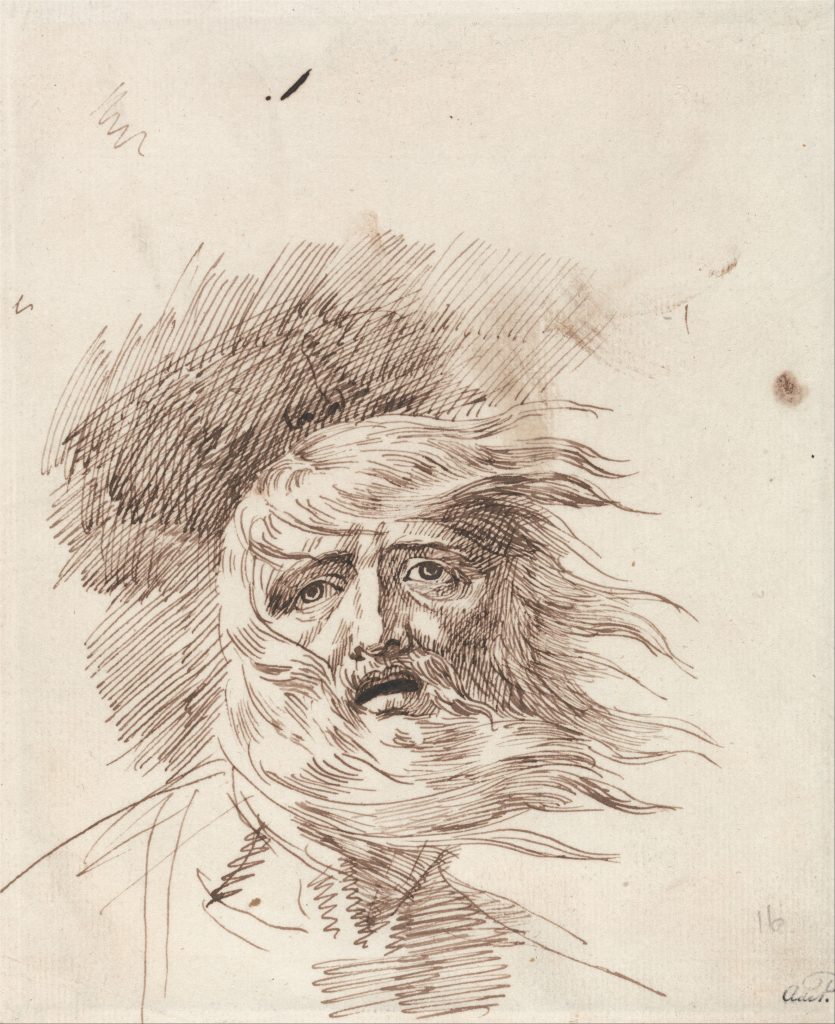
Rupert Smith delivers his paper on King Lear at Yale Divinity School’s annual Graduate Conference in Religion and Ecology
by Adrian Jarvis | Sep 28, 2023 | Uncategorised | 0 comments

Rupert Smith’s Yale University conference paper on Shakespeare’s King Lear explored the disorientation and dislocation of human elements and those of Nature. It sought ways to best interpret the entangled connections between them.
There are two important learning outcomes. The first concerns ecocritical readings of King Lear, and how they might be seen as generative in terms of the possibilities of us all having a personal stake in public events. What is revelatory in King Lear are the potent ripple effects of a symbolic act: a monarch’s tearing up of a map of a kingdom into fragments. It appears to set in motion the simultaneous dissolution of relationships between humans, plants and animals. A similar story of exploitative cause and effect was integral to the conference keynote speech, with its account of a remote indigenous Amazonian tribe slowly dying due to mercury poisoning in the lakes and rivers. It became one of performative lament.
There is a new appreciation of what these in-depth readings of King Lear potentially yield: that even from Shakespeare’s early seventeenth-century perspective (which stemmed from an awareness of heightened food anxiety), ecosystems of human and plant and animal are inextricably knotted together. It could be seen to extend from the heart of Lear’s royal court to facets of disrupted Nature and its anomalies. It is not simply that the uncovering of ecocritical readings of the play is surprising but that an ontological framework is evident between apparently unrelated and disparate voices. The act of writing a paper to clarify these concepts within a constricted time frame reflected such a gossamer-like entanglement. It represented an act of assembly, light-touch weaving in academic references and literary allusion.
The second point of learning centres on the realisation of how the pushing of language to the limit in the play provides a barometer for the Earth’s descent and degradation. In light of this, the challenge for Rupert Smith is how to write his way forward in his creative practice. Language in King Lear shows itself to be an inadequate container, or tool, for expressing grief and trauma over the need to control Nature’s wild spaces and over exile from the self. One breakthrough in the research was a fresh understanding of how cries of lament and notes of hope are intertwined. A counterpoint to this was the polyphony of contributions from other conference presenters and the focus on the religious dimension of prayerful lament present in King Lear despite the descent into tragedy.
Lastly, the performative act of bringing to speech the words on the page is beneficial for the growth of the written project and vice versa. One vital strand of this creative practice is the orality and performance of future academic papers and new King Lear mythologies. It is hoped that this writer’s bringing of speech to the limit and the shedding of language in all its forms onto receptive ears will represent the growth of an ecosystem in words.
.
Recent Posts
- Knowledge Exchange & Wellbeing Residential 2024
- NWCDTP EDI Advocate: Blog Post (February) By Hannah Helm
- Hannah Helm’s (Our EDI Advocate) December EDI Update
- Hannah Helm’s (Our New EDI Advocate) November EDI Update
- As we begin to plan for Sexuality Summer School (SSS) 2024, we take a look back at SSS 2023
Recent Comments
Archives
- March 2024
- December 2023
- November 2023
- October 2023
- September 2023
- May 2023
- January 2023
- December 2022
- October 2022
- July 2022
- June 2022
- May 2022
- February 2022
- January 2022
- December 2021
- September 2021
- August 2021
- July 2021
- April 2021
- December 2020
- November 2020
- July 2020
- June 2020
- May 2020
- April 2020
- March 2020
- February 2020
- August 2018
- June 2018
- May 2018
- April 2018
- January 2018
- November 2017
- October 2017
- September 2017
- August 2017
- July 2017
- June 2017
- May 2017
- March 2017
- February 2017
- January 2017
- November 2016
- October 2016
- July 2016
- June 2016
- May 2016
- April 2016
- March 2016
- February 2016
- January 2016
- November 2015
- October 2015
- September 2015
- July 2015
- June 2015
- May 2015
- April 2015
- March 2015
- February 2015
- January 2015
- December 2014

0 Comments